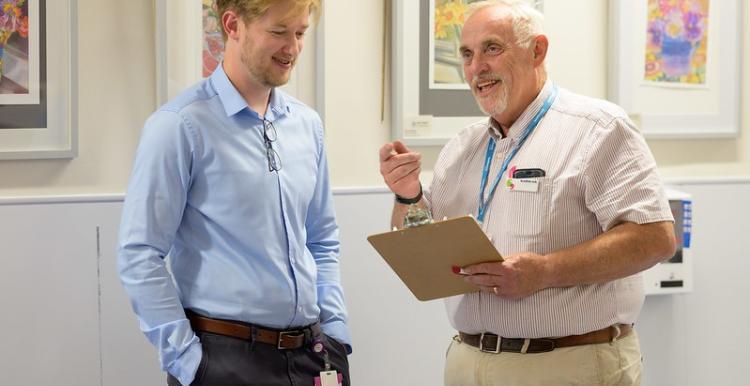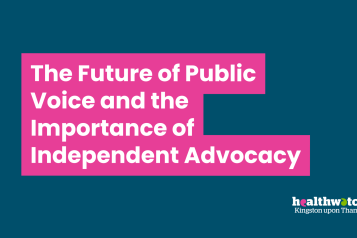What does it mean to have Autism and ADHD?

Attention deficit hyperactivity disorder (ADHD) is a condition characterised by inattention, high energy levels, impulsiveness, craving novelty, hyperactivity and/or people’s ability to manage their time.
Conversely, people with autism may not like change. They prefer to plan activities in detail may find it difficult to deal with social situations or to understand what others are thinking or feeling. People with autism tend to have deep interests in certain subjects and activities.
On the face of it, it would seem that the two conditions are mutually exclusive; however research shows that around 50 – 70% of people with ADHD also have autism. And there are common autism and ADHD traits, such as sensory differences, sleep issues, difficulties with interoception and emotional dysregulation.
What did Healthwatch find?
In January 2025, Healthwatch carried out a poll of 2,579 adults with suspected or diagnosed ADHD in England. This revealed that 45% said they had autism as well as ADHD. Three in five people who had already been diagnosed with ADHD had also been diagnosed with autism or had suspected autism.
People with both conditions shared how each condition affected them. Respondents told Healthwatch that they felt their ADHD and autistic traits clashed and sometimes cancelled each other out:
“Since I suspect I also have autism, the traits of both conditions often clash which makes things confusing for others and myself. It also means that I can appear more 'normal' to other people. I've been heavily masking since I was young and my need to fit in and not be seen to avoid negative attention means that my struggles almost always fall under the radar.”
White British woman, 18 – 24, Essex
People with both autism and ADHD (sometimes referred to as “AuDHD”) felt that the difficulties they experienced weren’t always obvious to employers and healthcare professionals.
As a result, they felt that diagnoses were missed:
“It has impacted my life greatly since I was a child. I believe that I have AuDHD. I find many day to day things a struggle. It has always been difficult to focus on a task without being distracted by another. I struggle interacting with other people, it has always been difficult to maintain any friendships. I struggle greatly when other people don't follow rules. I believe it has impacted greatly on my mental health throughout my life from childhood and I have never been listened to by GPs when I have explained symptoms and their impact.”
White British woman aged 25 - 49
Having two separate diagnoses
In 2013, the Diagnostic and Statistical Manual of Mental Disorders (DSM-5), the manual used by health workers around the world for definitions of psychological diagnoses, allowed for ADHD to be diagnosed together with autism.
However, in England the NHS has two separate pathways for autism and ADHD assessments.
People told us about the problems clinicians had in diagnosing the two separate conditions:
“I had an autism assessment but despite being dismissed from my second ADHD referral for being too likely to be autistic, they had a panel review which declared me as not autistic as I had too many ADHD traits which muddied the waters for a clear cut diagnosis. I do have somewhat of a fear that at my next actual successful referral appointment I'll be subjected to further ‘well you don't neatly fit either box so clearly you must be neither’ and get an official bill of ‘neurotypical, but just really bad at everything’ as a result.”
White British man, aged 25- 49, Birmingham
People with both conditions talked about the additional pressure this put on them, having to go through two referrals and waits.
“I waited months for my autism assessment and now I’m back in the waiting list for ADHD. It’s impacting my finances, my daily living, my mental health…”
White British woman, aged 50 – 64, Staffordshire
Some people decided not to go through asking for a referral for an assessment for the second condition because of the length of time it took to get an assessment for the first condition.
People wanted to have a combined assessment:
“The lack of holistic diagnosis systems is a real issue. I am 99% sure I am autistic as well as ADHD and said this when I went for my assessment. The response was that I had to pick one to be diagnosed for and they couldn’t do both. This is not only stressful for the individual (feeling invalidated and having the prospect of the stress of having to navigate the system again for a second diagnosis) but also feels like a really inefficient use of NHS resources”
White British woman, aged 25 – 49, Staffordshire
What to find out more about people’s experiences of ADHD?
Healthwatch recently published research into the profound impact ADHD can have on people’s lives and the changes we are calling for to make sure everyone can get the support they need.


